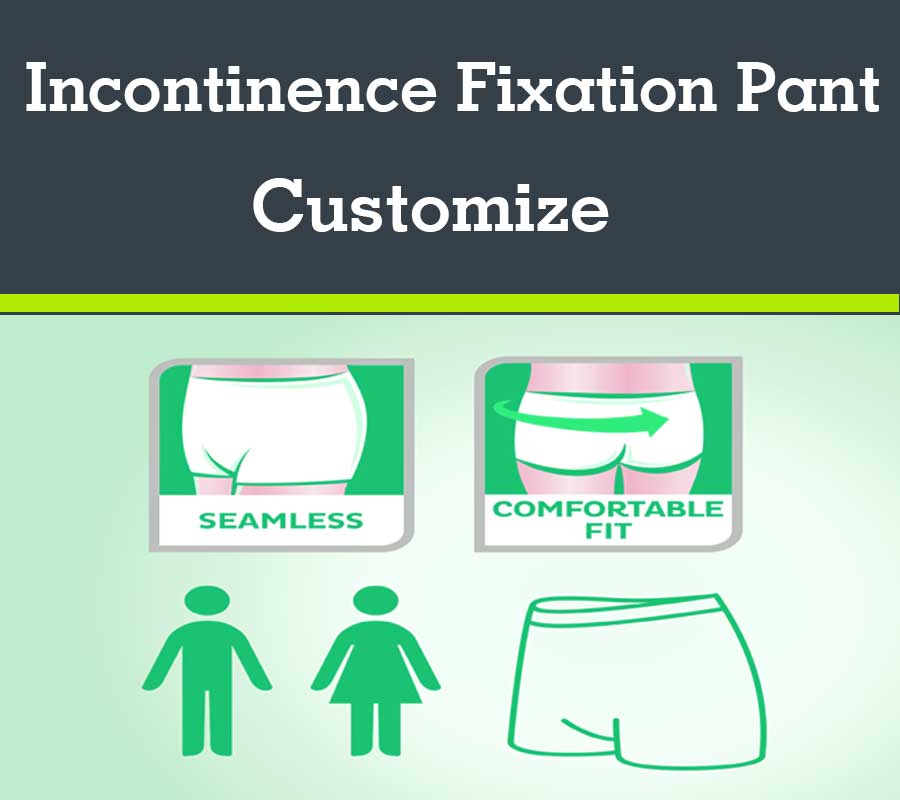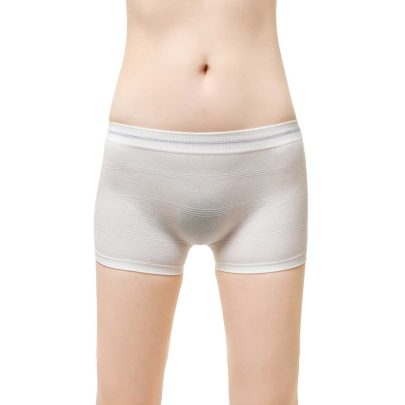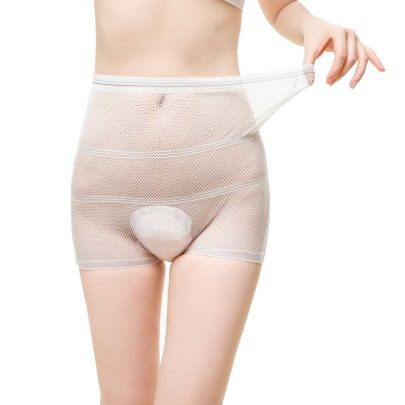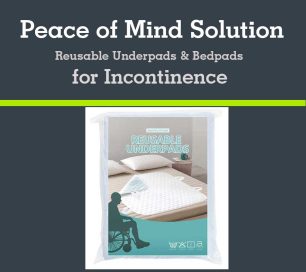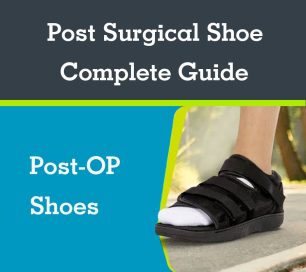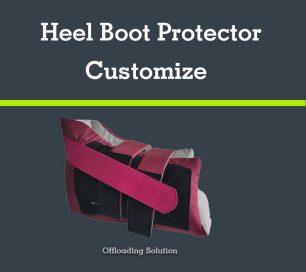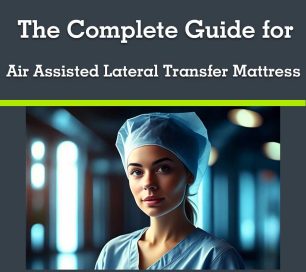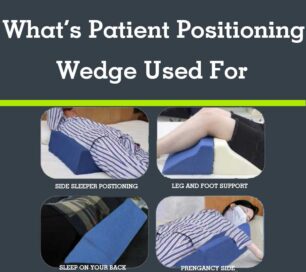Last Updated on 4 months by admin
Metacare a leading global hygiene and health company. With over 10 years of experience Metacare is focus adult incontinence . We offer a full range of absorbent products, skincare and patient comfortable solutions that are tailored to the needs of individuals, their families and healthcare professionals.
We are Professional fixation pants Manufacturers.Specialized in supporting OEM service. China leading OEM supplier for healthcare solution, customised LOGO. Stock Spot, Contact now. Excellent Quality Control.
Metacare is at the forefront of developing products and services that help improve dignity and the quality of people’s lives. We strive for sustainable continence care with better care and better products.
Incontinence fixation pants OEM service
What are fixation pants?
Incontinence fixation pants are garments designed for people with urinary or fecal incontinence. They usually have a snug fit and are made of soft, stretchable materials. These pants trap the pad in place, stopping it from moving around and helping to keep leaks contained. They have several elastic bands to stop leaks from escaping. The bands sit just below the waist and around the legs.
The Metacare range of washable and reusable fixation pants holds incontinence products securely in place. Regardless if it’s smaller pads or large, shaped incontinence pads, the fixation pants hold the pad in place to reduce the risk of urine leakage while maximising comfort. The range vary from net or mesh pants, primarily intended for short-time use, to underwear-like cotton mixtures, for comfortable daily use. metacare fixation pants have a stretchy unisex design to minimise pressure points, yet a reliable fixation and a great fit. To maximise the usage of the reusable fixation pants, they can all be washed at 60 degrees and tumble-dried on low to medium heat. Doing so, they can be worn again and again without losing shape.
Types of incontinence fixation pants
Some options are disposable, while others are reusable after washing. They are available in different sizes to fit men and women. There are two main types:
- Reusable incontinence pants: These are designed to be washed and worn again. They are made from soft, stretchy fabric and have a snug fit. Their design is similar to regular underwear, making them comfortable to wear daily. They have pockets to hold incontinence pads or built-in absorbent layers to provide extra protection against leaks. They are eco-friendly and economical since they don’t need to be replaced often. They are suitable for light to moderate incontinence.
- Disposable incontinence pants: These are the more convenient type that needs to be used once and thrown away. They have a pull-up design, like regular underwear, and are made from soft, non-woven fabrics to give users comfort. They have elasticized waistbands and leg cuffs to ensure a secure fit and prevent leakage. Disposable fixation pants offer varying absorbency levels, making them suitable for people with different incontinence severity. They are ideal for use while traveling or in situations where changing and washing reusable pants may not be practical.
There are special fixation pants for men and women. Men’s pants usually have a front pocket to hold pads for extra protection. Women’s pants are designed to fit around their hips and have a contoured shape to fit snugly against the body.
How to choose incontinence fixation pants?
Considering the skin’s health, the wearing comfort, and the protection level, here are some tips on choosing the right incontinence pants:
- Level of absorbency:Assessing the severity of incontinence will help determine which pants offer the best absorbency. Light incontinence will require regular absorbency pants, while heavy incontinence will need super absorbency or night pants.
- Skin-friendly:Look for pants made from soft and breathable materials that are gentle on the skin. Avoid anything that might irritate sensitive skin, such as scratchy fabrics or tight elastics. Check the labels to ensure no harsh chemicals were used in manufacturing.
- Comfort and fit:When it comes to comfort, the fixation pants for incontinence win the competition. They are designed to hug the body and move with it, unlike disposable pull-up pants that feel bulky. The close-to-the-body fit means no chafing or rubbing, which can be a nightmare for sore or sensitive skin. Many styles have adjustable waistbands and leg openings, allowing a custom match for every shape and size. This means no gaping or pinching – just soft seams that lie flat against the skin.Many fixation pants are made from stretchy yet form-fitting fabrics like cotton, modal, and elastane. These materials cocoon the wearer in a second-skin feel, whether sitting, standing, or walking. Breathable designs also prevent overheating and moisture from building up.
- Discreetness:For many people, wearing incontinence pants is a shameful experience. Choosing a discreet style that won’t draw attention to the wearer is essential. Look for pants that have no visible lines or bulges underneath clothes. Fitted designs that closely skim the body help keep secrets safe.
- Washable and reusable:Consider the laundry schedule and choose pants that can be machine washed and dried for convenience. Look for durable, easy-to-care-for styles that won’t fade, pill, or lose their fit and absorbency after repeated washings. For environmentally conscious consumers, reusable fixation pants are an attractive alternative to disposable options.
How to use and product safety?
Users should wash incontinence fixation pants regularly with the absorbent pads and pants separately. Here are some tips for using these products:
- Skin Care:Wear disposable gloves and carefully remove the wet or soiled pants. Use gentle, circular motions to clean the skin with warm water and mild soap. Pay attention to skin folds, as these areas are more prone to irritation. Remove any waste from the skin and dry it thoroughly with a soft towel or cloth. Leave the skin dry to avoid more irritation and skin rashes.
- Apply Barrier Cream:After cleaning and drying the skin, apply a thin layer of barrier cream or ointment to the affected areas. This will create a protective barrier against moisture and friction, helping to prevent further skin damage. Choose products with zinc oxide or petrolatum as their active ingredients for effective protection.
- Change Frequency:Change the fixation pants promptly whenever they become wet or soiled. The longer urine or feces remain in contact with the skin, the greater the risk of irritation or infection. Make it a habit to check the skin regularly and change the pants as needed.
- Size and Fit:When choosing incontinence fixation pants for men or women, ensure they fit well. Pants that are too tight can restrict movement and irritate the skin. On the other hand, pants that are too loose may not provide adequate protection against leaks. Consider the user’s body shape and measurements when selecting the right size. Many brands offer size guides based on waist and hip measurements, making it easier to find the perfect fit.
- Washing Instructions:For reusable fixation pants, follow the manufacturer’s instructions for washing and care. Typically, these pants can be washed in cold or warm water with mild detergent. Avoid using fabric softeners or bleach, as these can damage the absorbent properties of the pants. Hang them to dry or use low heat in the dryer to ensure they maintain their shape and fit. Proper washing and drying help keep the skin healthy and reduce the risk of skin irritation or infection.
Functions, features and design of incontinence fixation pants
The primary function of disposable fixation pants is to hold incontinence pads securely against the body, preventing leaks and ensuring comfort. They are designed with elasticated waistbands and leg openings, which provide a snug fit and keep the pads in place. Some have adjustable side fastenings, offering a customizable fit for different body shapes and sizes. The pants are made from soft, breathable materials like cotton and polyester, which are gentle on sensitive skin and help prevent rashes and skin irritation.
Disposable fixation pants have several key features that enhance their functionality and user experience. Many products have leak-proof barriers or cuffs that provide extra protection against leakage. This feature is particularly beneficial for individuals with heavy incontinence. They are available in various sizes, ranging from small to extra-large, catering to different waist and hip measurements. This ensures a proper fit for individuals of all body types. Some disposable fixation pants have moisture-wicking properties, which draw moisture away from the skin and keep the user dry and comfortable.
The design of disposable fixation pants is similar to regular underwear, which helps to promote dignity and self-confidence among users. They have a pull-on style, making them easy to wear and remove. Some designs include openable sides, facilitating easy changing and removal, especially for individuals with limited mobility or caregivers. The seams of the pants are often flatlock, reducing friction and preventing chafing.
FAQ
What are fixation pants?
Fixation pants, also known as protective underwear or adult diapers, are specially designed pants to help manage incontinence. They are made with soft, comfortable fabrics and have built-in pockets or straps to hold absorbent pads or diapers securely in place.
How do fixation pants help with incontinence?
Fixation pants can be worn by people of any age. They offer a discreet and comfortable option for managing incontinence. They hold absorbent products snugly, which helps prevent leaks and protects clothing from wetness. This makes fixation pants a practical choice for individuals dealing with bladder or bowel control issues.
Are fixation pants reusable?
Yes, most fixation pants are made from durable materials that can be washed and worn multiple times. This makes them a cost-effective and environmentally friendly option compared to disposable incontinence products.
Do fixation pants come in different sizes?
Yes, fixation pants are available in various sizes to ensure a proper fit for individuals. It is essential to check the size chart provided by the manufacturer to select the most suitable size based on waist or hip measurements.
How do I care for fixation pants?
To care for fixation pants, they should be machine washed in cold water with similar colors and then tumble dried on low heat or air-dried. It is important not to use fabric softeners or bleach, as these can damage the elastic and moisture-wicking properties of the pants. Proper care will ensure that fixation pants remain comfortable and effective for managing incontinence.
What is the best thing to wear for incontinence?
If other treatments don’t work for you, or if you’re dealing with leaks while you wait for those treatments to “kick in”, it may be time to try incontinence underwear. Depending on your needs, you may choose single-use undergarments that absorb leaks or pads and shields that fit inside your regular underwear.
What’s the best incontinence pants?
Brands like Metacare,Drylife and TENA offer some of the most absorbent pants, designed to handle significant bladder leakage and provide overnight protection.
What should you not do if you have incontinence?
Fluid and diet management, to regain control of your bladder. You may need to cut back on or avoid alcohol, caffeine or acidic foods. Reducing liquid consumption, losing weight or increasing physical activity also can ease the problem.
Do incontinence pants smell?
Incontinence: Incontinence, whether urge or stress incontinence, can result in urine leaks onto your pants, causing an ammonia smell. Using incontinence pads or underwear designed to neutralise odours can significantly help.
What is the number one treatment for urinary incontinence?
Midurethral sling procedure.This is the most common procedure for stress urinary incontinence. It is a minimally invasive procedure that places a small piece of mesh under the urethra tube
What is the best drink for incontinence?
- Fluids that are good for the bladder
- Water is the best option for the bladder and for general health.
- Diluted cordial / squash drinks.
- Diluted fruit juice.
- Many fruit and herbal teas.
- Red bush tea (a type of tea that is naturally caffeine free)
What is the new device for incontinence?
Metacare fixation pants is a non-invasive, at-home option for women and men with urinary incontinence.
What can I put on my floor for incontinence?
Choosing the right size and absorbency protection for you or your loved one is the best way to avoid leaks. And adding disposable incontinence underpads and bed pads, also known as chux, to your leakage toolkit is a great way to protect bedding, furniture and flooring from accidents when they happen.

